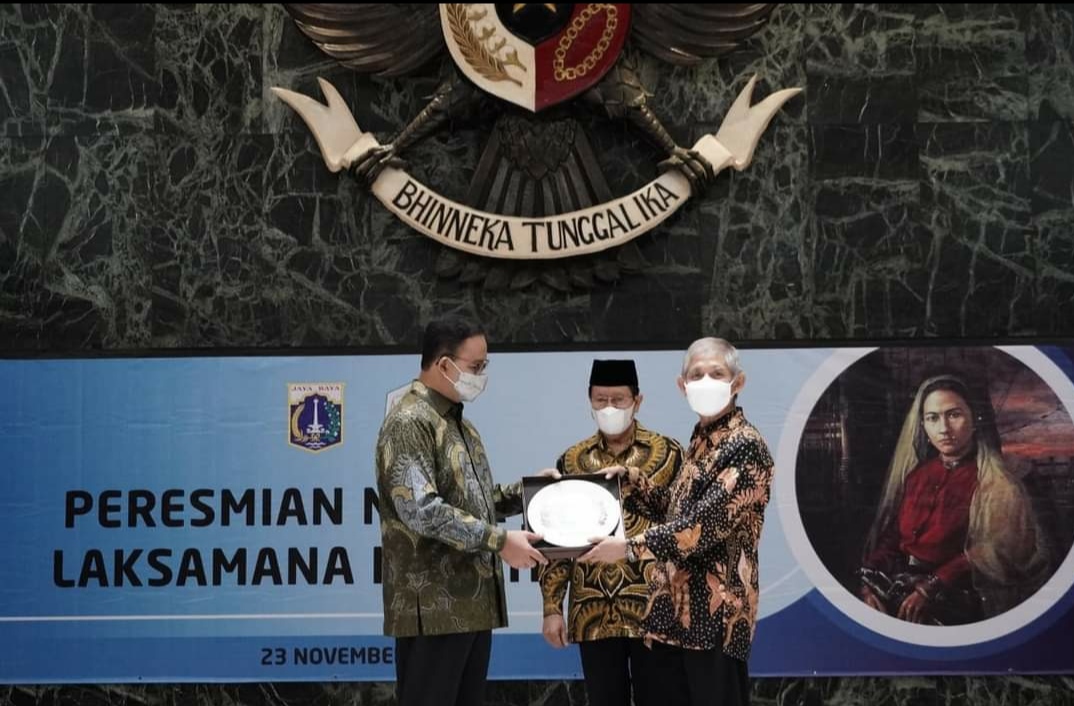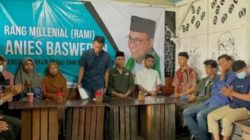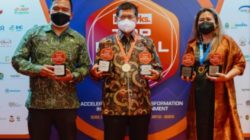By Anies Rashid Baswedan
An important lesson from the formation of the Indonesian nation is that educated youth, in the early days of the 20th century, have managed to form a historical path to face the injustices of colonialism.
The path of history in question is the awareness and belief that true freedom will be attainable, when different origins and backgrounds, are willing and able to unite in the goal. United in that goal is the breakthrough that has had an impact until now.
The consequence of that occurred the process of percentage that resulted in a new entity named Indonesia. It’s not just a mixture of all the elements.
It’s different from mixing. Mixing does not form a new entity. The percentage actually produces a new entity and when it is re-described into its forming element, the new entity becomes lost.
As an illustration, water is the result of a combination of hydrogen and oxygen. Water is different from hydrogen, and not oxygen. But in water there is oxygen, and in water there is hydrogen. Both are not lost and remain. However, they are in a certain arrangement.
This condition can be proven that the two can still be separated, by certain reactions, back into hydrogen and oxygen. And we have to realize, if oxygen and hydrogen are separated, there is no more water.
Like a family, there is an element of husband, wife and child. When it comes to family, it does not mean that each of its unique elements is lost.
But if each one only sees the forming element, forgets the elements formed that is the family and then forgets the purpose of family, then actually the family has been torn apart even though it still lives under the same roof.
Focus on the Goal
The family is united by purpose and because of the equality in that goal it is different who choose to remain united. This archipelago is also a big part. The elements in it combine, fill each other, raw influence and form a new entity, that’s Indonesia.
Uniting in purpose does not mean eliminating its forming elements. So, the Minang remains Minang, the Sunda remains Sundanese, the Bugis remains Bugis, there is no change. Through the percentage, all the elements form a new element called Indonesia. In Indonesia there is Minang, there is Sunda, there is Ambon.
However, what has often happened when we read and discuss Indonesia is that we focus and highlight the elements that form it. It even raises its forming elements. In fact, we need to focus more on the new elements formed, namely: Indonesia.
Philosophy of Bhinneka Tunggal Ika
“Bhinna ika tunggal ika, tan hana dharma mangrwa”, which means: different it is, that one, there is no double devotion. Now we write as the motto “Bhinneka Tunggal Ika”, the different ones are fused.
The most important word in that sentence is “singular”. Even affirmed by the word “ika”, sanskrit diction which in Javanese is equivalent to the word iki, iku, or kuwi. The key message is to be single, fused as a group.
Because it is strange if we read Indonesia precisely by just emphasizing bineka. Why? Therefore, it is the same as discussing the results of the percentage by focusing on the forming elements. Moreover, we realize that the various elements are fused not because of origin but united because of the common purpose.
Diversity can and should be celebrated as a form of gratitude for God’s grace. Although actually, if you talk bineka then there are many other nations that are much more powerful than Indonesia. What is unique about Indonesia is not its twinkle, but its unity. There are not many people who have a group like Indonesia.
Diversity is God’s creation, God’s gift, while unity is the result of man’s efforts. One of the earliest attempts to bring all elements in this archipelago is to agree on a common language. The agreement to use Indonesian as a language of unity has made all elements easily become Indonesian.
The common language is a bridge to unity, a tool to unite into a new element called Indonesia. This is the nation that managed to agree on a common language and agreed before the state was formed. See India with 2 official languages and 22 other languages that can be used in government activities, or the European Union with 24 official languages.
The existence of a language of unity makes no matter how complex the problem, even the conflicts faced between elements in this nation, do not need translators to bridge. They all use one language of unity. A brilliant breakthrough.
The Purpose of Becoming Indonesia
What makes all the elements in this nation choose to go through this process? Why merge into “Tunggal Ika”? The answer is simple: there is the same goal, which is to achieve true independence. True independence is the roll of colonialism and the presence of a sense of fairness and prosperity.
All elements want a sense of justice, such as equality of opportunity to progress, to prosper, and for a better life. That’s the goal of uniting to be Indonesia. So, when looking at or discussing about Indonesia then this goal needs to be the focus.
On the one hand, the colorful patterns of Indonesian forming elements are only beautiful if there is unity. On the other hand, unity is difficult to build on inequality or injustice. Unity will be easy to build and stronger if there is equality of opportunity and treatment, and if there is a sense of social justice.
A message for all: celebrating Indonesia is not only characterized by showing the diversity of its forming elements. Celebrating Indonesia is to show the success of achieving the initial goal of why all elements choose to “become” Indonesia, namely the presence of social justice and shared prosperity. (*)
*This post has been published on Anies Baswedan’s Facebook page.










